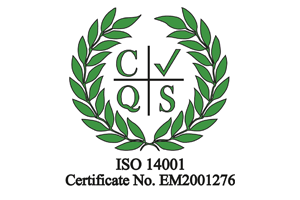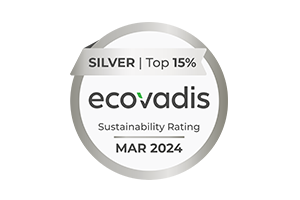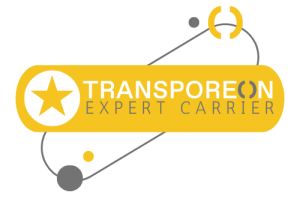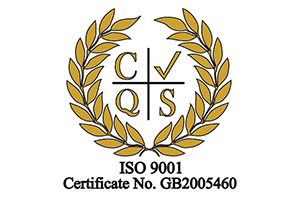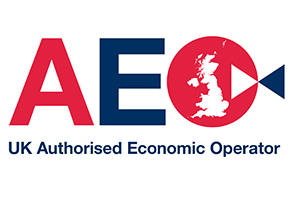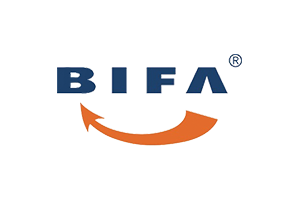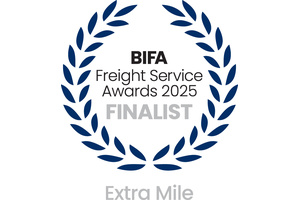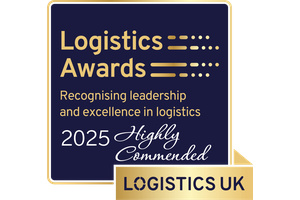Decarbonisation and sustainability in the European Freight Transport and Logistics industry

Decarbonisation in the freight transport industry could be seen as an improbable aspiration. How do responsible members of the logistics and supply chain community reduce carbon output in what is inherently a high pollutant emission industry?
There’s no getting away from the fact that diesel powered trucks pump a large volume of CO2 into the atmosphere and have done so for many years. Are electric trucks the answer? In some local scenarios, partially, but they are not a universal panacea for long distance cross-border road transportation.
The scale of the transformation required is enormous and costly to implement, however, the key European transport operators in the market are recognising the challenge and addressing it with enthusiasm and innovation.
Climate change is a real and a global problem affecting every nation, but reassuringly, there are several initiatives being undertaken by governments and shippers - and logistics providers in Europe have to play their part in the transport sector.
In the report from the International Transport Forum’s December 2020 report they set out some aggressive targets for decarbonisation, aiming to support the overall EU strategy to be a carbon neutral society by 2050.

Source: The International Council on Clean Transportation, Status Report September 2022
How are we supporting decarbonisation and sustainability?
The increased use of multi modal transport systems is a big part of the answer to reduce freight movements by road, however, there are challenges around cross border services that have to be overcome. These need the continued support of individual countries collaborating with each other to create workable systems with a reduction in red tape.
Efret is a market leader in designing bespoke intermodal solutions, tailored to individual client requirements. By using an extensive network of rail, sea and truck providers, we can select the most efficient combination to blend existing with new services across multiple borders.
As a live example of our capability in this field, we have recently been tasked by one of our prestigious automotive clients to design and engineer an intermodal solution for a high mileage route from Spain direct to Turkey. By transferring freight traditionally moved by road to a combination of road and sea, this has the potential to reduce CO2 emissions by 2 million tonnes per year.
In another example, by utilising intelligent route planning on freight movements to France, Spain and Portugal, via western ferry ports, we have demonstrated how we can shave 200 kms per full truck load journey. This smart action can save tonnes of CO2 from hundreds of full truck loads per year.
In addition, we’re also making every effort to reduce our environmental impact, promote ethical practices, and contribute to the communities in which we operate. Our sustainability endeavours include initiatives to reduce carbon emissions, minimise waste, and promote sustainable supply chain practices.
From a Group company perspective, Efret’s parent company, GB Global, have committed to Net Zero emissions by 2050 and have entered the Race to Zero.
As the UK’s largest privately-owned logistics business, they acknowledge their responsibility to safeguard the environment through corporate responsible business practices and their commitment to meeting the UN Global Compact and UN Sustainable Development Goals.
To achieve these goals, their sustainability strategy focuses on the following four key areas:
- Environmental control: preventing pollution / climate change mitigation
- Circular product life: sustainable resource use and recycling
- Corporate governance: quality / health and safety at work / compliance
- Social governance: human rights risk situations / human development and training in the workplace
In conclusion, Efret, as one of Europe’s leading transportation companies, and as part of a major logistics group, we will continue to contribute to the net zero objectives. In addition to multimodal operations, this includes ongoing initiatives from a road transport perspective:
- State of the art transport planning system for maximising route optimisation
- Monitoring of MPG and utilising best performing vehicles on longest routes
- Encouraging our Alliance fleet to replace equipment on a 3-to-5-year basis and giving consideration to fuel efficiency in purchase decisions so that all fleet are Euro VI compliant
- Encouraging our Alliance fleet to upgrade to latest engine variants and fuel saving features
- Load weights and tyre pressure email alerts on 90% of trailers by end of 2024 (tyre pressure significantly impacts fuel efficiency)
- Ongoing Alliance fleet driver training, utilising cruise control and telematics driving assessments
- Accommodating hybrid working to reduce employee travel and an increased use of software solutions for virtual meetings
Efret will continue to support the design and delivery of new and innovative transportation solutions with a sustained commitment to environmental initiatives.
Recent articles
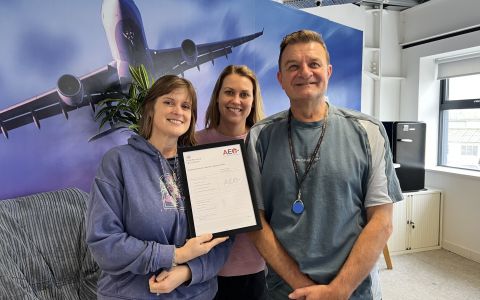
Efret proud to announce renewal of AEO accreditation
5th February 2026 1 minute read
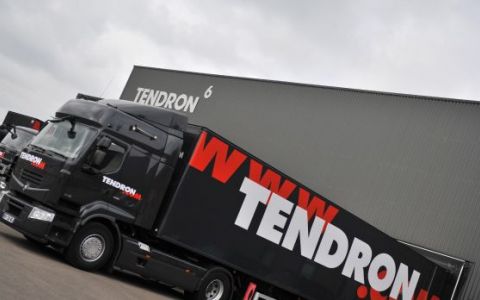
Efret welcomes Tendron as GB Global bolsters European network
28th January 2026 1 minute read
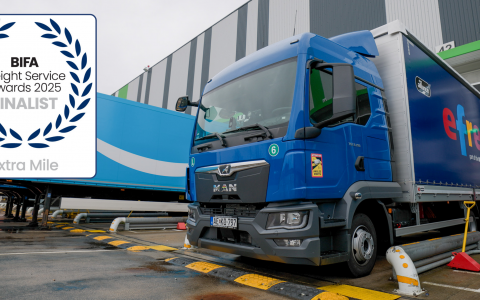
Efret Shortlisted for BIFA ‘Extra Mile’ Award 2025
29th October 2025 2 minute read
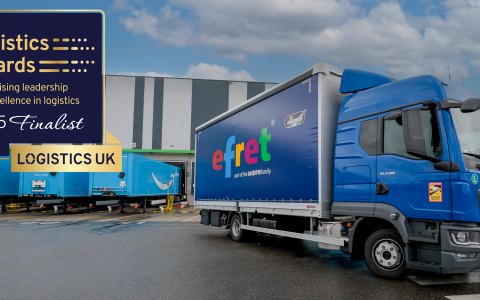
Efret Shortlisted for Van Business of the Year at Logistics UK Awards 2025
20th August 2025 2 minute read

